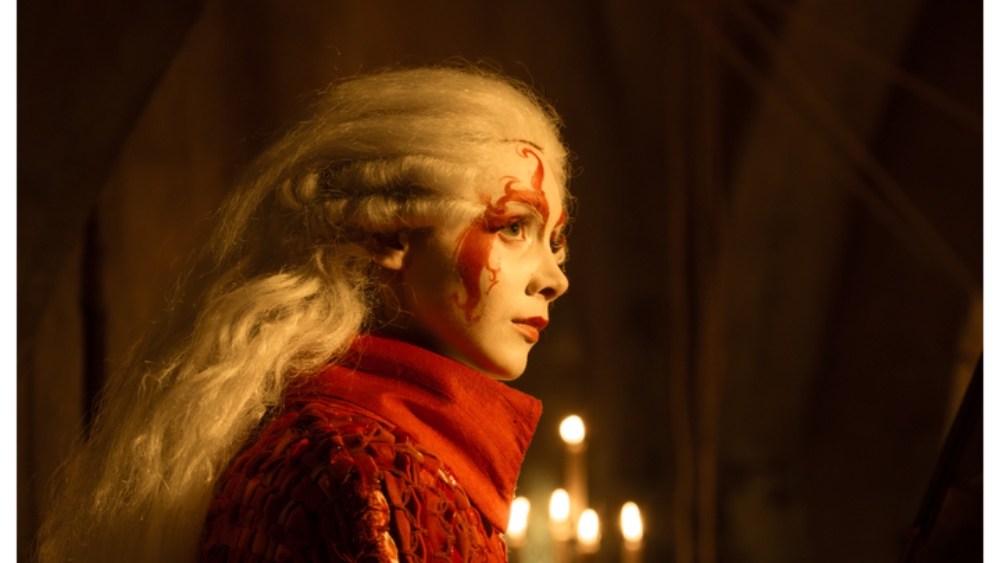Double the trouble, double the fun. In the new series “Mozart Mozart,” the audience will get to know the famous Austrian composer – as well as his sister Maria Anna, forgotten by history books.
“It’s quite amazing so few people know about her,” says screenwriter Swantje Oppermann, while its creator and showrunner Andreas Gutzeit adds: “When you watch the very first scene, you understand who was the original child prodigy. She was just as mesmerizing to the audience – until she became a woman and her role in the society changed. That was something that touched us very deeply.”
In the show, produced by Gutzeit’s Story House Pictures in co-production with giant German pubic broacaster ARD (WDR/SWR/ARD Degeto Film), Austrian state TV ORF and Dreaming Sheep Company – with Beta Film and Bavaria Media handling world sales – Maria Anna finally gets the spotlight she deserves. Just like many other female artists, ignored for centuries.
“It’s interesting you say it’s a contemporary thing to do – bringing female artists from the shadows back into the light. That’s probably why I wanted to do this project,” says director Clara von Arnim (“The Zweiflers”), answering Variety’s question.
“The focus on Maria Anna makes it, in a way, timeless. As a woman in cultural business and in the film industry, you have to make sure you are not underestimated.”
The series stars Havana Joy (“Love Sucks”), Eren M.Güvercin (“Skam Germany: Druck”), Eidin Jalali (“The Swarm”), Verena Altenberger (“Wild Republic”) and Sonja Weißer (“Maxton Hall”).
Gutzeit took on another iconic figure before, delivering four seasons of smash hit “Sisi: Austrian Empress.”
“Despite the fact that everything had been said about Sisi, people were still buying the show. I realized having a brand is the key to all these movements in the market. And Mozart has been a brand for over 250 years.” Still, a brand is only as good “as the allure it holds for people.”
“You have to give them something new and unexpected, but at the same time service their expectations. That was the goal,” he adds.
The team didn’t want to copy other famous takes on the composer – least of all “Amadeus,” says von Arnim. Instead, they decided to show the siblings when they are young.
“We convinced our partners we wanted to make this show also for young people – one that could bring them close to these characters. We wondered: ‘What would Mozart sound like today, if he was a superstar?’,” admits Gutzeit.
“Amadeus was always jockeying for the limelight, but it’s not only about him. It’s about her. We wanted to catch him at the point when he’s a superstar. And like any good superstar, he explodes and goes down. That’s when she shines.”
His sister suddenly needs to replace him, but they behave differently on stage.
“I told Eren he could see his role a little bit like Britney Spears or all these stars dragged onto the stage from a very young age. Movement-wise, we looked at David Bowie and Pete Doherty. Maria Anna is more like Mulan,” laughs von Arnim, referencing Disney’s classic about a girl who disguises herself as a man.
“Throughout the series, her shows get bigger. She claims the stage, just like her brother did. But in a more emotional way.”
Their story might not be over just yet.
“There’s definitely room for more. This first season feels like the summer of these characters. Maria Anna rediscovers her own ambitions. Not only as ‘Mozart,’ but also as herself,” notes Oppermann, with Gutzeit assuring the second season is “ready to go.”
“Once again, it will try to add a new layer to the story you thought you knew – hopefully, it will knock your socks off. Anybody who has some money left over, please step to the front of the line. We’re happy to accept your contributions,” he jokes.
Amadeus and Maria Anna care for each other deeply. But they also know the crowd is the king.
“Their relationship is very important because the story puts them on a path of confrontation. She begins to perform as him, so how does the patriarchy fight back? These are complex issues that we hide in a very entertaining story,” says Gutzeit.
“We had a lot of discussions about respecting the myth of Mozart and wanted to respect that force. But in terms of storytelling, in terms of who these historical figures were, all bets are off because they’ve been misrepresented sometimes.”
Oppermann never wanted to make a biopic or “deliver a history lesson.” “Just like Clara said, there are still glass ceilings. Young women will be able to relate to Maria Anna’s struggle to be taken seriously.”
That being said, “Mozart Mozart” doesn’t exactly stray from history either.
“If people want to check what’s really true, they’ll be surprised by how close we get. Welcome to the rabbit hole,” adds Gutzeit.

Courtesy of Beta Films

